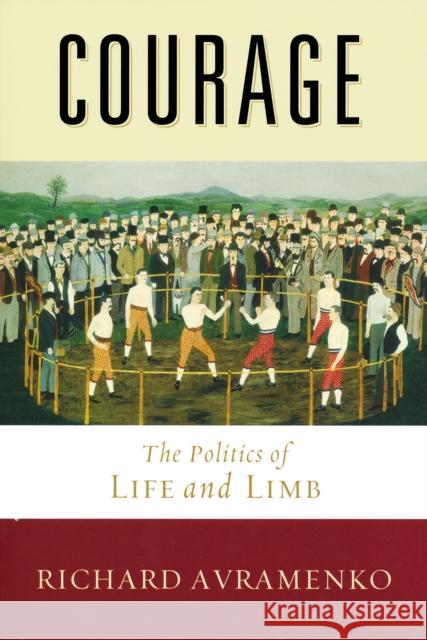Courage: The Politics of Life and Limb » książka
Courage: The Politics of Life and Limb
ISBN-13: 9780268020392 / Angielski / Miękka / 2011 / 376 str.
"Courage: The Politics of Life and Limb" is a compelling and highly original study of the paradox of courage. Richard Avramenko contends that courage is not simply one virtue among many; rather, it is the primary means for humans to raise themselves out of their individualistic, isolated, and materialistic existence. As such, courage is an absolute and permanent good for collective human life. Specifically, Avramenko argues that when we risk "life and limb" for one another we reveal a fundamental care that binds our community together. Paradoxically, the same courage that brings humans together also drives us apart because courage is traditionally understood as manly, by definition, exclusionary, inegalitarian, and violent.Avramenko explores the efforts of political thinkers throughout history suchas Aristophanes, Plato, Aristotle, Rousseau, and Tocqueville to reformulate courage so as to hold fast to all that is good about it while jettisoning that which is problematic. In addition to martial courage, the book looks at political courage, moral courage, and economic courage."Courage: The Politics of Life and Limb" makes a vital contribution to the discipline of political science. Clearly and engagingly written, the book will be of particular interest to students and scholars of political theory, ethics, and gender studies."In his ambitious book, Richard Avramenko has given us a profound and rigorous treatment of four important phases in the self-understanding of courage. Avramenko has done much more than provide a snapshot of the 'red badge of courage'; he has taken courage as a prism within which the history of political thought can be viewed. As a consequence, he has also shown how courage is more than a one-dimensional invocation, but a many-faceted virtue whose meaning remains inexhaustible. He has mapped the terrain with a mastery that will be difficult to surpass." David John Walsh, The Catholic University of America"











